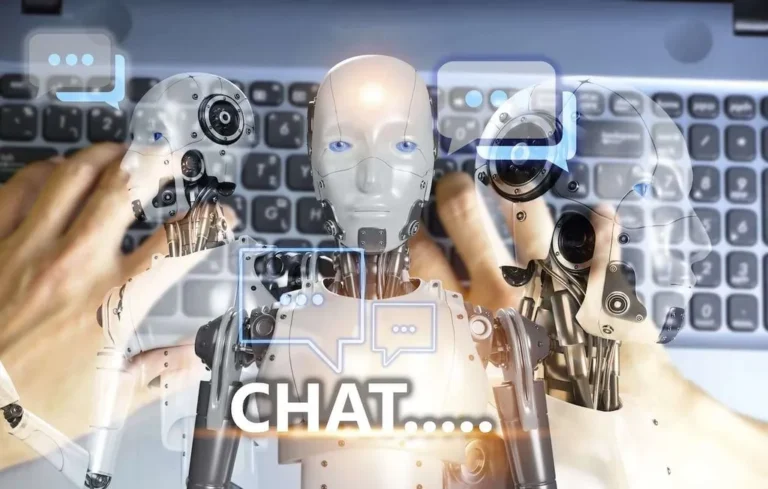Chatbot vs Conversational AI: Key Differences and Use Cases

When discussing chatbots and conversational AI, people often use these terms interchangeably without recognizing the subtle differences between them. However, until recently, the former functioned as basic virtual assistants. They send scripted replies when dealing with simple queries. Businesses had to consider their limitations and set clear escalation rules. However, the development of artificial intelligence technology signified a pivotal shift in how queries are processed. Advanced systems produce context-relevant responses and analyze the history of past conversations. In this guide, we will compare a chatbot vs conversational AI and consider the main scenarios for deploying such products.
What is the Difference Between Chatbots and Conversational AI?
Companies seeking to streamline their customer support (CS) teams’ workflows integrate script-driven bots to process simple queries effectively. Many people wonder: “Are chatbots AI based?” Regular bots follow a set of specific rules. Conversations with them are hardly engaging, as users can only choose between different options offered by a bot. While such solutions facilitate finding information in knowledge bases and answering simple questions, they are not built for complex tasks.
AI-powered chatbots deployed by CS teams have a high degree of autonomy. They leverage natural language processing models to understand requests and generate relevant responses. When dealing with extensive datasets, they examine the interaction history to write tailored replies and guarantee buyers’ happiness. Even though both basic and AI-powered bots are deployed as self-service solutions, the latter allows businesses to save money by automating processes.
Conversational AI is an umbrella term for modern technologies that enable bots to detect intent and respond to text and voice queries. A virtual assistant communicates with clients using a natural-sounding tone of voice. Trained on large sets of high-quality data, AI models formulate informative messages.

We are confident that we have what it takes to help you get your platform from the idea throughout design and development phases, all the way to successful deployment in a production environment!
Main Applications of Chatbots and Conversational AI
When building the first automated CS solutions, their developers aimed to improve customer experience (CX) and streamline procedures. They created detailed scripts, helping bots produce detailed answers. The development of conversational AI allows businesses to offer individualized CS services and process complex queries automatically.
AI-powered bots keep clients engaged and generate context-relevant replies. Unlike traditional bots, AI systems remain in high demand across many industries. They save companies a lot of money and ensure high customer satisfaction.
A quick chatbot vs conversational AI juxtaposition demonstrates that the former can cope only with basic tasks:
- FAQ: Customers should be able to find any information they need by browsing the FAQ section of a firm’s official website. Such pages typically contain information about a company’s policies. However, finding the right answer may be challenging, as there are too many pages to look through. Chatbots are built to assist clients with queries. They have advanced search capabilities, which allows them to provide timely answers.
- Appointment scheduling: There is no need to navigate convoluted phone menus if a virtual assistant can expedite the process of booking an appointment. It can consult a person about the free slots and send notifications.
- Shipping status updates: Major eCommerce platforms already deploy powerful AI systems. They enable customers to track purchases in real time. Using them, clients get accurate information about a predicted delivery time.
- Automated replies: Chatbots reset passwords and update personal information in user profiles. Financial organizations deploy them to write responses to bank inquiries. Buyers no longer need to call an enterprise or fill out lengthy forms. Chatbots send messages quickly and efficiently, ensuring high satisfaction levels.

In contrast, conversational AI applications can replace human employees. They have the following uses:
- Individualized recommendations: AI-driven tools process massive datasets and create tailored recommendations depending on client’s preferences and needs. They consider the purchase history and send notifications when a person is most likely to be more inclined to re-purchase a specific product. AI systems collect data about clients’ tastes and assist people with product discovery. Designed to amplify conversions, they can be fine-tuned to elevate CX and improve every step of a client’s journey. Using them is the first step toward building loyalty and decreasing spending.
- Solutions to complex queries: The usage of virtual helpers enables entities to reduce the average resolution time and address any issues causing frustration. Improved customer service experience is a prerequisite to success in eCommerce and other spheres. Conversational AI models troubleshoot issues, guide customers, and formulate accurate product descriptions. Nowadays, people prefer to contact brands across multiple communication channels. AI bots analyze the history of their requests and produce automated messages using collected insights. They escalate challenging queries and summarize tickets to help human agents solve them.
- Natural language understanding: Clients use different wording when formulating their requests. A conversational chatbot puts queries in the context. It can understand convoluted requests and formulate factual responses. Using pre-built AI systems and customizing them depending on specific needs, firms save time and leverage NLP technology to provide personalized services. They support integration with legacy systems and communicate with buyers in multiple languages, providing support 24/7.
- Human-sounding conversations: Smart assistants offer emotional support, helping clients to deal with difficult situations. They are taught to demonstrate empathy and look for the best solutions. AI agents communicate in human voices and handle increased workloads efficiently. Such assistants remember the conversation history and fix issues faced by customers. Using ASR technology, they interpret accents and dialects.
These examples demonstrate that advanced AI solutions have many advantages, which explains their quick adoption across multiple sectors.
Benefits of Conversational AI over Scripted Chatbots
While both solutions allow enterprises to save money and deliver value, AI tools are invaluable for businesses that want to optimize processes and achieve sustainable growth. After comparing regular bot vs AI agents, it becomes obvious that the latter are more suitable for converting leads. Below, we have outlined the main upsides to implementing conversation engines:
- Interactions with a human touch: Using predictive analytics capabilities, AI products adapt responses after analyzing conversation history. Instead of following strict guidelines, they improvise and come up with innovative solutions that appeal to customers.
- Contextual awareness: Rule-based assistants fail to remain functional when facing situations that weren’t described in their scripts. In contrast, AI agents analyze prior chats and make custom suggestions.
- Scalability: A conversational bot answers many queries simultaneously across multiple platforms without any delays.
Due to the advanced capabilities of automated assistants, the usage of such solutions is forecasted to increase in the coming years in various fields.
Which Option to Choose?
When looking for automated support solutions, enterprises should consider the queries they have to deal with. Even though traditional bots are cheaper to implement, AI assistants are more suitable for companies that want to achieve long-term success by building close relationships with clients and strengthening reputation. However, integrating them without the expertise of seasoned professionals may be arduous.
After comparing a chatbot vs conversational AI tools, it becomes clear that the latter have impressive potential. The Global Cloud Team specializes in generative AI and builds custom products for firms from various industries. Get in touch with us today and discover how to utilize AI-powered systems to establish strong relationships with your clientele.
Top Articles
The Primary Aspects of Automated Inventory Management
I am here to help you!
Explore the possibility to hire a dedicated R&D team that helps your company to scale product development.






